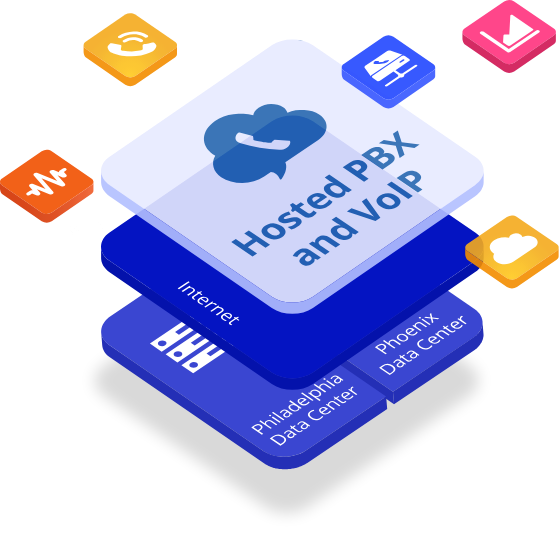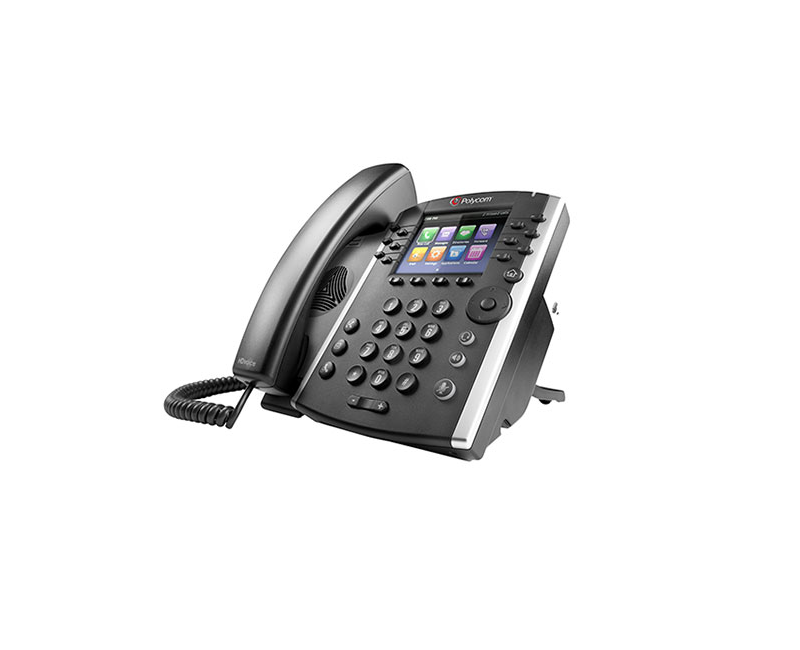Business cloud phone systems:
What are they and how do they help your business.

How to choose the best cloud based phone system for your business
When it comes to choosing the best cloud phone system for your business, you want the process to be as easy as possible. CIS ensures that it can be!
In this guide, you’ll learn what to look for when transitioning to cloud business phones. If you’re new to Voice over Internet Protocol (VoIP) and Unified Communications as a Service (UCaaS), this guide will give you essential information for choosing the right business phone system.
Learn more about how CIS can help your business.
Talk to one of our CIS experts today!

Table of Contents
- 1. What is a cloud phone system for business?
- 2. When to transition to a cloud phone system.
- 3. What to expect from your VoIP/cloud phone system provider’s customer support.
- 4. Why business communications need room to grow.
- 5. Why do modern workers need more than an old-fashioned desk phone?
- 6. Why video conferencing is no longer just “nice to have.”
- 7. How companies are saving money while boosting their communications capabilities.
- 8. Switching to cloud phone systems
1. What is a cloud phone system for business?
This section explains what a cloud phone system is.
Business phones have changed significantly in the last few decades. They used to provide voicemail, multiple lines, and automatic call distributor (ACD) menus.
Today’s technology innovations enable companies to move to sophisticated, cloud-based communication systems that provide greater functionality, productivity, and reliability.
Unlike traditional phones, a cloud phone system uses the internet to make and receive calls. A cloud-phone provider manages the service remotely. This reduces costs for on-premises equipment and maintenance. Updates occur automatically, resulting in enhanced system performance.
Also, you can deploy your new cloud service and be up and running within an hour—with minimal network interruptions and zero downtime.
Plus, internet-based business phone services enable greater call flexibility, allowing employees to work on their mobile devices from home or remote offices, airports, customer sites, etc.
Additionally, UCaaS capabilities allow businesses to integrate their phones with other operating systems and business applications. For example, CRM data and customer insights can be integrated into your call center data so call center agents can serve customers faster. The end-of-day reports allow teams to analyze call center performance for greater optimization over time.

Small business phone systems or Enterprise communication systems? The difference between buying a business VoIP phone system and an enterprise UCaaS and/or call center phone solution is based upon the feature set your small business really requires.
Small businesses with straightforward communication needs (such as a virtual receptionist, mobile applications customizable call flow and even call forwarding and transfer capabilities) tend to choose an economical subscription-based, plug-in-style business office virtual phone system.
Other small, mid-sized, and enterprise businesses may choose an enterprise UCaaS solution to meet specialized communications needs, including:
- Video and audio conferencing
- Instant messaging for desktop and mobile devices
- Cloud voice and business application integration
- Customized call flows and integrations for call centers
Get the cloud phone system designed for your business.
A modern cloud phone system built for your business needs, CIS has your back with versatility, reliability, and plenty of advanced features.
Learn more about how CIS can help your business.
Talk to one of our CIS experts today!

2. When to transition to a cloud phone system.
This section discusses the factors to consider when deciding to transition to a cloud phone system.
For decades, business phone setup and management stayed the same. Businesses had to:
- Purchase the hardware
- Pay the phone company for the service
- Manage the on-premises system in-house (or hire a contractor)
- Allow for service disruptions during hardware and system upgrades
- Workaround phone outages due to natural disasters
Now, users connect their business phones (including softphones, traditional desk phones, and mobile devices) to the same internet connection and pay a monthly service fee. The provider manages the system remotely and system updates occur automatically, preventing maintenance interruptions.
Additionally, redundant, distributed data centers (that run the system’s software) guarantee disaster-recovery failover in the event of natural occurrences, such as hurricanes, floods, and earthquakes.
The Easy Four-Step Process for Transitioning to a New Business Phone
Cloud-based phone systems are considered the most agile and reliable global business communications solutions.
However, for many businesses, parting from their traditional phone system can be challenging.
Whether you need to convince the executive team that a UCaaS system will improve productivity or reassure HR that cloud phones will simplify their communication, the following will help you get everyone on board.
STEP 1 Planning (and why you need it)
Anytime you change critical equipment or services such as a phone system, planning is key to the success of the project.
It begins with understanding the needs of your users. Maybe your sales reps are hearing from customers that it’s hard to get through to the right person.
Maybe your customer service staff finds it difficult to solve customers’ issues because the CRM and phone systems are not integrated.
Your staff will most likely have opinions about the new phones, systems, and mobile applications. However, once they experience the easy-to-use, intuitive platform, their satisfaction ratings are sure to skyrocket.
PROTIP
Find out what your users want from their phone.
- Are they deskbound (receptionist, call center worker)? What do they like or dislike about their existing phone system?
- Are they mobile users (warehouse supervisor, field rep)? What will make their mobile communications easy and efficient?
- Do they switch between desktop and mobile applications? What do they need to make the device transition seamless?
The success of switching to a cloud phone system starts with understanding your users. If they’re happy about what they’re getting because it addresses their needs, the transition will be positive!
STEP 2 Rehearsing: The secret to a successful turnover
Without rehearsals, the “actors” feel anxious, unprepared, and unsure if they can pull off their performance.
The same goes for getting your new cloud system up and running. If there is no practice session, ensuring ample bandwidth, secure connections, and comprehensive staff training, the switch to the new phone system will leave you merely hoping that everything goes smoothly.
However, with your cloud communications customer support consultant there to set up and test your new unified communication system, you alleviate concerns such as:
- Will the receptionist feel (and sound) confident using the new phone?
- Will your sales rep access his business voicemail, without delay, while traveling?
- Will the IT engineer execute a flawless video call at the investors’ meeting?
STEP 3 Present an overview to the team
To ensure a smooth transition to the new system, get team members up to speed before you update your system.
If you work at a small business, prepare staff for the switch by briefing them on the system, its key features, and the upgrade timeline. For larger organizations, IT and call center managers can prepare their teams, providing overviews and discussing features specific to their work needs.
Whether you’re describing system functions that serve operational teams or customer-facing staff, explaining the upgrade process and fielding questions ahead of deployment will set everyone up for a seamless transition.
STEP 4 Launch: All systems go!
You’ve gone through the process of deciding to upgrade your phones. You’ve validated your teams’ needs, tested the system, and shared an overview of key features and functionality.
Now it’s time to deploy. To prevent any disruptions during work hours, schedule the system switch in the evening hours or over a weekend.
Also, should you have any questions once you launch, you’ll have 24/7 customer support.
Get the cloud phone system designed for your business.
A modern cloud phone system built for your business needs, CIS has your back with versatility, reliability, and plenty of advanced features.
Learn more about how CIS can help your business.
Talk to one of our CIS experts today!

3. What to expect from your VoIP/cloud phone system provider’s customer support.

One of the more stressful parts about switching to a cloud-based phone system is hoping that everything goes to plan—that users are happy, and the change is invisible to customers.
When deploying full-featured UCaaS and/or call center cloud solutions, you’ll have the support of a dedicated Success Hero. Not only will your Success Hero ensure everything launches without a hitch, but they’ll help you customize the system to fit your specific needs.
In fact, your cloud phone provider should ensure that:
- Staff transition to the new system with confidence
- Colleague feedback about the phones is positive
- Business teams—from your sales reps to C-suite—experience greater productivity
- Call center managers and agents are delighted with their ability to gather real-time business insights for improved performance.
When it comes to choosing a new UCaaS platform, “white-glove” customer support makes all the difference. Whether you need help with a billing question or an urgent system-related issue, you’ll get immediate, personalized assistance from your qualified consultant.
4. Why business communications need room to grow.
Ultimately, you want a phone system that will adapt as your business grows. Whether you need to add some additional seats or an entire new office to your cloud communications platform, updating your system to support your evolving business should be quick and easy.
For example, a single office with a small footprint may need a sophisticated suite of features (such as CRM integration and video calls).
Alternatively, another business in a three-story space may require hundreds of UCaaS seats plus a portion with call-center capabilities.
That’s where enterprise phone customization comes in.
Some small business’ owners wonder if cloud-based phone systems provide excellent call quality and internet connection and reliability. To learn more about Voice Over Internet Protocol, read our article What is VoIP?
Most cloud phone providers connect via the public internet or Multiprotocol Label Switching (MPLS).
Consequently, as traffic increases (e.g., during peak usage times), network connections reach capacity, resulting in connection delays, choppy and jittery reception, and dropped calls.
However, reliable VoIP phone call quality is not only possible, it should be expected: CIS’s curated internet connections provide its business phone service users with flawless connectivity and superior voice quality.
Is reliable VoIP call quality possible?
Some small business owners wonder if cloud-based phone systems provide excellent call quality and internet connection and reliability. To learn more about Voice Over Internet Protocol, read our article What is VoIP?
Most cloud phone providers connect via the public internet or Multiprotocol Label Switching (MPLS).
Consequently, as traffic increases (e.g., during peak usage times), network connections reach capacity, resulting in connection delays, choppy and jittery reception, and dropped calls.
However, reliable VoIP phone call quality is not only possible, it should be expected: CIS’s curated internet connections provide its business phone service users with flawless connectivity and superior voice quality.
Your UCaaS Feature Overview
Customize your business communications plan with CIS.
5. Why do modern workers need more than an old-fashioned desk phone?
When you move to a modern UCaaS system, you expand employees’ communication options and provide capabilities that go way beyond just a desk phone.
Mobile
Employees are used to the flexibility and freedom of personal smartphones and tablets. Providing staff with mobile apps for their full business communications system allows them to work from anywhere on any device.
Standout features include:
- Phone Number Privacy: Use your business phone number on personal cell phones. For example, if your sales rep is calling a client from her mobile device, she’ll be able to maintain the corporate identity with a business phone number. Additionally, her phone number will remain private.
- Call Metrics Recording: By using the corporate business number from a personal device, your business communications system tracks each user’s time spent on calls (Including activity on both desktop and mobile devices). Management can then measure call data via real-time dashboards.
- Simultaneous Ringing: Employees who work from their desks and beyond the office can receive calls wherever they are. For instance, for the warehouse manager who shifts between his office, the warehouse floor, and the loading dock, both his desktop and mobile phone will ring so he can answer from wherever he is.
Messaging
Just as mobile devices have become a popular business communication tool, so has instant messaging. Texting applications enhance traditional phone and email communication, allowing staff to send and receive messages quickly.
By providing employees with enterprise-class instant messaging on their mobile phones, they can chat with colleagues and customers while preserving their business identity.
Call Center
Your call center platform is so much more than agents answering phones. A cloud-based call center can be integrated into your other business applications to improve customer insights, speed, accuracy, and customer satisfaction
For example, if call center staff can see a customer’s purchase and call history in real time, they can provide informed, efficient assistance. At a time when customer service is closely tied to brand success, having a comprehensive call center is critical to staying competitive.
Learn more about how CIS can help your business.
Talk to one of our CIS experts today!

6. Why video conferencing is no longer just “nice to have.”
There was a time when video conferencing was an impressive addition to a business communication platform. Expensive video equipment was typically reserved for large corporations’ boardrooms and came with hefty usage rates.
As cloud-based video technology emerged, video conferencing became readily available to businesses of different types and sizes.
Over time, image quality sharpened, connections became more reliable, and applications were easier to use. Eventually, as video chat for smartphones came into full bloom, businesses started connecting “face-to-face” with employees, clients, and customers.
Also, as business activities reached around the globe, and staff started to work remotely, real-time video conferencing became even more valuable.
The advantages of offering seamless video conferencing.
Today, high quality video conferencing and chats are an integral—if not expected—part of business communication.
When a client or customer can see you, the dynamics of the call change. A video call lets people see your facial expressions and body language, showing your confidence and demonstrating transparency.
Also, rather than relying on audio calls and emails alone, video helps you understand client and employee reactions, create more meaningful connections, and build strong working relationships.
If you have offices and employees in other states or countries, meeting in person may not be practical.
Video calls and chats bring your national and global teams together in one place—in seconds, not days.
A one-on-one video chat or group call can help everyone sort out the details of a new project or business issue quickly and with clarity.
No need to sift through emails, searching for a snippet you want to mention. No need to re-read an email, trying to decipher what the person possibly meant. Instead, you can communicate in real time, clarify information instantly, and get work done more efficiently.
For employees who can’t be there in person, video calls make them feel like part of the team—and your business.
Your clients, customers, and prospective employees operate in an interconnected, always-on business environment. As video conferencing becomes a communication norm, you’ll stand out as a progressive, tech-savvy company.
Get video conferencing go-to features.
Depending on the size of your business and your video conferencing needs, you may have a dedicated conference room with HD screens, or you may use your phone for quick video check-ins with the team.
Either way, when you add video capabilities to your UCaaS service, you get features that make video calls a regular part of your day:
7. How companies are saving money while boosting their communications capabilities.

“I switched from AT&T and I couldn’t be happier. AT&T support is just the worst. I had my CIS system up and running on the first day. I’m also saving a ton on my monthly phone bill. Thanks, CIS Team!”
– Ashley from Child Evangelism Fellowship
“We tried both Spectrum and Vonage Business before switching to CIS. CIS’s rates for telephone, toll, and fax lines are over 50% less than the competitors.”
– Erik Lennon from Encore Technologies
“I switched from Ooma. They provided me with Ooma phone hardware that just stopped working. After being on hold with their tech support from India for over four hours Ooma wanted me to send the phones back to them. Ooma wanted to swap out the broken phones and send me new ones. Since I only purchased the hardware they wanted to charge me for their cloud phone service knowing that I would be without my phones for a week while I wait for the new shipment. That’s when I called CIS. Alex Macis the owner of CIS got me on CIS cloud phone service free of charge and he paid for me to ship the Ooma phones to him so that he could get the phones working on CIS. Within 24 hours Alex shipped my Ooma phones back to me and sent one of his techs to my office to install, test, and show me how to use the phones all fees were covered by CIS, now that’s customer service! Thank you, Alex Macis! CIS has a loyal customer in me”.
-Dianna Gilmore
Learn more about how CIS can help your business.
Talk to one of our CIS experts today!

8. Switching to cloud phone systems
Well done, you’ve reached the end! Whether you’re simply exploring cloud-based phone systems or are ready to switch to a UCaaS or cloud call center system, the information in this guide will help you navigate the cloud communications process.
Ultimately, the more you understand about cloud phone systems early in your research, the easier it will be to make a well-informed decision.









